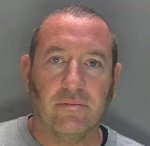Jewish citizens of Israel are organizing watch parties, standing on hills to observe bombs and missiles exploding in Palestinian communities. This woman talks about the only solution, to wipe out their entire city.
Israelis regularly organize lynching parties where they go out on the hills overlooking Palestinian communities and set up a picnic as they watch bombs mass murder them. "I'm just a little bit fascist", admits one of them in this clip pic.twitter.com/TeWUASSwqE
— ☀️👀 (@zei_squirrel) February 6, 2023
Lady, I think you’re a lot fascist. The phrase “never again” ought to be universally applicable to all peoples, but Israel has a rather narrower interpretation.










